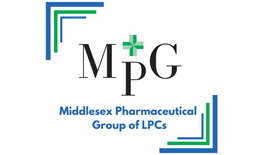PSNC’s Pharmacy Pressures Survey has confirmed that the unsustainable pressures on community pharmacies are having a serious impact on pharmacy teams’ wellbeing, affecting patient services negatively, and putting businesses at risk.
The survey of over 5,000 pharmacy premises and 1,000 pharmacy team members took place in early 2022, asking community pharmacy contractors and, separately, pharmacy staff, about the effects that the current pressures are having on them and their colleagues.
The results indicate that 91% of pharmacies are experiencing staff shortages and almost half of contractors are extremely concerned about their pharmacy’s finances, with 80% reporting that the costs to run their pharmacies are significantly higher than this time last year. At the same time, nine out of ten pharmacy teams have seen a significant increase in phone calls from patients about prescriptions, and 86% reported a rise in requests for healthcare advice.
With pharmacies under this level of workload pressure, PSNC also heard about the impact on the mental health and wellbeing of pharmacy staff. The survey found that:
98% of respondents said that workforce shortages are resulting in increased pressure on pharmacy teams;
82% said that increased workplace pressures are negatively affecting their mental health and wellbeing; and
On a scale of 1 – 10, where 1 is not coping at all and 10 is coping perfectly fine, 79% of respondents scored their team as 5 or below.
As a consequence, two-thirds of pharmacies have had to cut back on services or the advice they offer to patients, and 29% have had to reduce their opening hours. These are last resort measures that are limiting pharmacy staff’s ability to spend the time with patients that they want to, and making them uncertain of their capacity to take on new services in the future.
In the survey:
90% of pharmacies reported that they are unable to spend as much time with their patients;
87% said prescriptions now take longer to dispense; and
Only 34% of respondents said that they felt that they had some capacity to take on new services in future.
Compounding the above, 83% of pharmacies reported a significant increase in medicine supply issues in the past year, leading to extra work and additional stress for staff. Two-thirds of respondents said that medicines supply chain issues are a daily occurrence, with 97% reporting that this led to frustration from patients.
Summary of the findings from PSNC’s Pharmacy Press Survey
PSNC remains very concerned about the pressures and funding constraints within community pharmacy, along with the current economic circumstances putting many community pharmacies’ sustainability into question. These pressures are a key focus for PSNC in the ongoing Year 4 CPCF negotiations.
Janet Morrison, PSNC CEO, said:
“The results of PSNC’s Pressures Survey make distressing reading for anybody in the sector – they tell a story of teams under immense pressures, and of businesses at crisis point. Pharmacy teams will do everything to ensure that patients get what they need, so it is particularly worrying to see the impact that pressures are starting to have on patients and the public as well.
We must take these findings as the warning signal that they are: the pressures on community pharmacies – coming from a combination of workload, workforce and financial factors – are simply unreasonable, and unsustainable.
Millions of people rely on their local pharmacies every day, and it is imperative both for them and for the wider NHS that this does not fail: to guard against that, NHS England and the Government must take heed of these findings and work with us to urgently address the causes. Without this extra support, patients and the public can expect to see an end to some of the pharmacy services that they have come to know and value.
PSNC has highlighted these findings to NHSE&I and Government, and we will continue to press them to give the sector the additional support it needs. Thank you to everyone who completed our Pressures Survey and in doing so helped to strengthen our case.”
